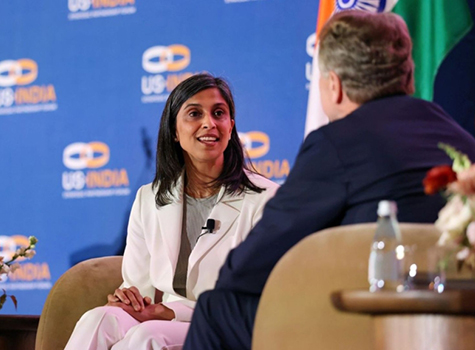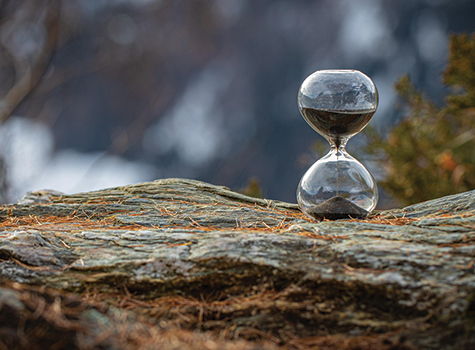
We have discussed diabetes many times before, and since it is such an epidemic, we will continue to talk about it. One of the main reasons why diabetes is called the silent killer is that there are many other chronic diseases associated with it. The two most common are heart disease and chronic kidney disease (CKD). In fact, diabetes is the leading cause of kidney disease and kidney failure. Globally, kidney disease is the third biggest killer after cancer and heart disease. Asian Americans are 1.5 times more likely to have end-stage renal disease than Caucasians. More than 200,000 kidney failures occur in India every year. For 60 percent of the people diagnosed with CKD, diabetes and high blood pressure are the underlying causes. Although, not everyone who has diabetes or hypertension will have kidney disease, it is important to be educated about it. Let us review why our kidneys are so important and what steps we can take to prevent damage to the kidneys.
Functions of the kidneys
The kidneys are two bean-shaped organs, each about the size of a fist. They are located just below the rib cage, one on each side of your spine. The kidneys perform many important functions.
Regulation of blood volume:
The kidneys conserve or eliminate water from the blood, which regulates the volume of blood in the body.
Regulation of blood pressure:
The kidneys regulate blood pressure in 3 ways
They adjust the volume of blood in the body by regulating the quantity of water in the blood
They adjust the flow of blood both into, and out of, the kidneys
They secrete an enzyme called renin which activates the angiotensin-aldosterone pathway that helps control the blood flow and blood pressure
Regulation of the pH of the blood:
The kidneys excrete H+ ions into urine. At the same time, the kidneys also conserve bicarbonate ions (HCO3), which are an important buffer of H+.
Regulation of the ion and electrolyte composition of blood:
The kidneys regulate the quantities of several important substances including sodium, potassium, calcium, chloride, and phosphate.
Production of Red blood cells:
The kidneys contribute to the production of red blood cells by releasing the hormone erythropoietin – which stimulates the production of red blood cells.
Synthesis of Vitamin D:
The kidneys (as well as the skin and the liver) synthesize calcitriol – which is the active form of vitamin D.
Excretion of waste products and foreign substances:
The kidneys help to excrete waste products and foreign substance from the body by forming urine. The kidneys help get rid of ammonia (from the breakdown of amino acids), bilirubin (from the breakdown of hemoglobin), and creatinine (from the breakdown of creatine phosphate in muscle fibers). Other substances that may also be excreted in urine include drugs, chemicals and toxins.
Symptoms of Chronic Kidney Disease
Chronic kidney disease (CKD) means your kidneys are damaged and can’t filter blood the way they should. If the kidneys are not able to perform the above mentioned functions, it may result in various symptoms.
• Low hemoglobin (anemia)
• Feeling tired
• Trouble sleeping
• Dry itchy skin
• Frequent urination
• Blood or foam in the urine
• Swelling on ankles or feet
• Poor appetite
• Muscle cramps
• Puffiness around the eyes
CKD Stages
The severity of kidney disease is measured by Glomerular Filtration Rate (GFR), the rate at which the kidneys filter wastes and extra fluid from the blood. The five stages of CKD are:
Stage 1: Kidney damage with normal kidney function (estimated GFR =90).
Stage 2: Kidney damage with mild loss of kidney function (estimated GFR 60-89).
Stage 3: Mild-to-severe loss of kidney function (estimated GFR 30-59).
Stage 4: Severe loss of kidney function (estimated GFR 15-29).
Stage 5: Kidney failure, also known as End Stage Renal Disease (ESRD), requiring dialysis or transplant for survival (estimated GFR <15).
How to prevent damaging your kidneys
The primary function of the kidneys is to filter out things that our body does not need. Artificial chemicals, preservatives, artificial colors, artificial sweeteners, and any substance that is considered a toxin to the body will be filtered out by the kidneys. Some medications can hurt the kidneys. Chronic use of pain medications, especially NSAIDs (Non-steroidal anti-inflammatory drugs) such as ibuprofen, Motrin, Aleve, etc. have been proven to damage the kidneys. Too much sodium in the diet and excess amounts of animal proteins are not good either.
People with kidney disease should pay attention to amount of protein, sodium, potassium, and phosphorus in their diet.
Eat right for your kidney health
• Drink 2.5 to 3.0 liters water everyday
• Avoid beverages with artificial sweeteners and artificial colors (soda, diet soda, Kool-Aid, Capri Sun, Sunny D, Crystal Lite, Gatorade, etc.)
• Limit or avoid alcohol
• Limit use of salt when cooking. Do not add extra salt to food on the table.
• Avoid too many packaged processed foods. Sodium is a preservative and is present in all packaged and ready to eat foods, including snacks and frozen meals. Avoid packages that have a long list of ingredients.
• Limit eating out to maybe once a week. All restaurant foods, especially fast foods are very high in sodium.
• Limit animal proteins. If you do eat meat, limit it to 4 oz. per day
• Limit dairy. Milk proteins have shown to cause inflammation. People who have kidney disease should avoid dairy milk. Limit cheese as it is very high in sodium.
• Eat a balanced diet full of plant-based foods such as vegetables, fruits, nuts and seeds, whole grains, beans and pulses. (Note: People with moderate to severe kidney disease should be limiting fruits and vegetables high in potassium).
The bottom line: Eat a clean diet with minimum preservatives. Eat a heart healthy diet and drink plenty of water to protect your kidneys.
———-
Parul Kharod, MS, RD, LDN is a registered dietitian and licensed nutritionist and works as a Clinical Dietitian with Outpatient Nutrition Services at WakeMed Hospital in Cary and Raleigh. She can be reached at parulkharod@gmail.com
Posted: Monday, October 15, 2018



